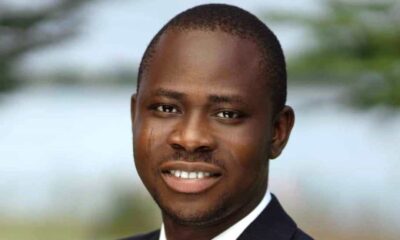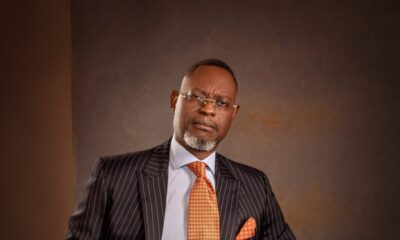Politics
2023 And The Usual Delusion of Incumbency
Article by By Hashim Suleiman


It is said that those who forget history are bound to repeat same mistakes and when you look around you’ll see these tendencies around some players of the 2023 elections especially those of the ruling APC party and such goes to tell you a lot about why our nation has found it difficult to make a headway regarding imbibing major attitudinal changes that can guarantee meaningful development.
It is said that those who forget history are bound to repeat same mistakes and when you look around you’ll see these tendencies around some players of the 2023 elections especially those of the ruling APC party and such goes to tell you a lot about why our nation has found it difficult to make a headway regarding imbibing major attitudinal changes that can guarantee meaningful development.
I had always spoken about my experiences in 2014 when I and my colleague who formed a non partisan advocacy group which was attempting to run a campaign for 30% affirmation for youth from all strata of government including political parties and private sector because we felt the youth had immense skills that could be tapped for excellence.
The most interesting of the meetings was the one we held with a high ranking member of the then ruling party, the PDP penultimate 2015 elections and to our dismay, after all our well laid out presentations and how such could help their strategy, the man blatantly told us they were the incumbent and would win the elections even if all Nigerians were not going to vote for them, we wondered what that meant especially that we had done our maths and knew they had issues, he shared phantom analysis and said they were relying on some big name politicians from the northern Nigeria whom we knew had little or no political goodwill to bring to the table, the rest about their fate in that election is now history, they failed woefully.
Fast forward to the 2019 elections when same character was employed by the ruling APC and it was a morning of the scheduled presidential elections that they recognized the incumbency thought was an illusion and they suddenly had to postpone the elections by a week and leveraged on Buhari’s sentimental popularity as well as struggled to patch some little areas to struggle to pull out an arguable victory by over 2 million votes. That again passed and everything returned to normal.
We are now approaching the 2023 elections and again all I can see from the APC folks is same approach of sharing ‘beer parlor’ analysis anchored on incumbency to assume that victory is already theirs while I see a totally different scenario realistically.
For example, the APC guys, majority of which are totally new entrants into the political game owing to Buhari’s magnanimity in rewarding friends, families and their allies believe that Buhari’s entire vote Bank which they also will not be able to see has been depleted belongs to Tinubu, how? Is it not same people we speak with on a daily?
The fact is majority of the voters of the country have chosen to conceal their intents owing to the governments high handedness on those who choose to express opinions other than those favorable to them in their tenure.
Such makes it difficult for anyone to truly understand where the people will swing to but a little reminder about their situation in 2014 and now will easily sway them into not voting for APC but you’ll wonder why the APC members will not see this and will refuse any explanations about it.
They will always also tell you about what has now become more of a cliché that Peter Obi would deplete Atiku’s votes and here again I see a people far detached from reality and politics.
I was in lagos earlier last month and to my amazement, my Yoruba friend had told me that there were more Obidients in lagos than any other city of Nigeria and they cut across all the ethnicities, I tried to explain this to some of my APC friends but they’ll debunk it and it always reminds me of my 2014 experience with the PDP as highlighted in paragraph 2 above.
I would also take my time to explain to them how so many of the critical stakeholders of the South East like Jim Nwobodo, Emeka Ihedioha, Osita Chidoka, Adolphos Wabara etc are Atiku supporters and whatever Peter Obi does he cannot deny PDP at least 40% of the south East votes which are sufficient for them while South South will come in the bag for PDP because in history, they had never aligned with the South East, whether it was for Biafra or the 1979 elections when they voted for Shagari ahead of Nnamdi Azikiwe or Awolowo, but again the APC folks will not agree to these and it will become worrisome how a serious people who crave victory detest conversations around history and data.
The APC and her supporters are clearly on a false footing regarding their permutations and high confidence which are anchored on big name politicians especially from the north most of which have lost touch with their people, majority of their conversations and expectations are what we term in local parlance ‘garage talk’ and it’s all orchestrated by their thought that incumbency and not critical strategy is enough but we should remind them that Nigeria’s democracy has long evolved and the earlier they recognize and align the better for them, otherwise, a shocker awaits them as will always with people who refuse to learn, unlearn and relearn like they are up to at the moment.
May the best man win for the benefit of country.


Hashim Suleiman writes from Abuja. He can be reached via email: [email protected]












